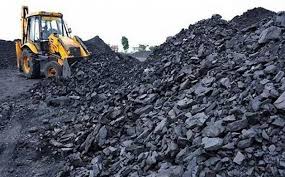
Ike Amos
Abuja — The Nigeria Extractive Industries Transparency Initiative, NEITI, has blamed the absence of reliable exploration data for the inability to access funds to finance production activities in the Nigerian mining industry.
NEITI, in its latest Occasional Paper, titled, ‘Improving Transparency and Governance for Value Optimisation in Nigeria’s Mining Sector,’ disclosed that credit financing for the mining sector is currently limited to trading activities and does not extend to production.
According to NEITI, the lack of credit and capital from the securities market makes it hard to acquire critical capital equipment like rigs and draglines, adding that this had led to other problems confronting artisanal and small scale miners, ASM.
It said, “The financing problem reinforces the recommendation for the provision of adequate geoscientific data with which banks can base their credit decisions to the mining sector.
“Stakeholders and governance institutions in the mining sector should also begin to cultivate a systematic relationship with financing institutions that with stimulate interests by the banking sector and help banks to understand the potential of the mining industry in Nigeria.”
The report noted that small scale mining companies find it difficult to access the kind of finance required for a capital intensive operation like mineral exploration, mainly due to inadequate or lack of access to geoscientific information.
According to the NEITI report, mining in Nigeria is largely a speculative venture with the significant amount spent on prospecting before a miner can discover mineral in mineable quantity.
“The reality is that small scale miners often lack the capacity to access credit as creditors consider them too risky due to their nature and scale of operations. The Ministry should put in place a short to medium time plan to provide credit guarantee scheme specifically for industry juniors to access capital for critical mining equipment,” the report added.
The report argued that much of the data on Nigeria’s mineral production remain unreliable mostly due to the fact that mining operations are conducted mostly by small scale artisanal miners, and also due to the proliferation of illegal mining across the country.
It explained that the existence of these factors increased the likelihood that production volumes are either understated or not reported at all by some operator, adding that the constraints of on-site monitoring and enforcement also compounds the problem as operators take advantage of poor oversight to under-declare production.
It said, “The challenges associated with under-reporting of mineral production have attendant implication for the amount of revenue reported by collection agencies. For the most part, artisanal mining in Nigeria is often illegal and high-risk activity. A number of ASMs usually operate without proper licenses, seek to avoid detection by mining inspectors, and avoid paying taxes.
“Available data from annual audit reports of the Nigeria Extractive Industries Transparency Initiative shows that a large part of mining revenue is derived from quarrying activity and from cement production, even though reports also show that in 2016 for instance, minerals exported from the country include tin ore, gold, manganese, tourmaline, aquamarine, beryllium ore, lead and zinc, copper, and feldspar.”



